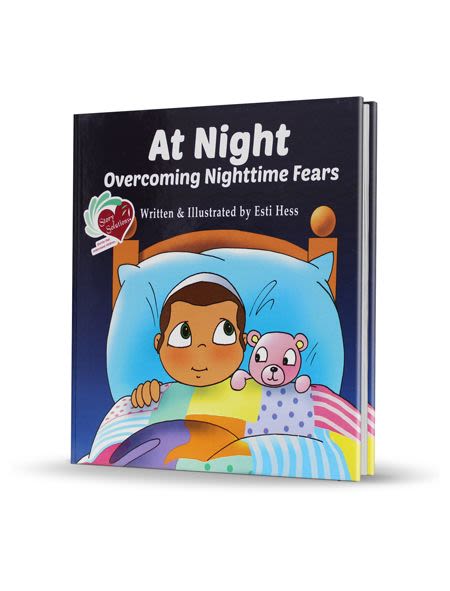
All You Need is Love
A few months ago, during personal prayer, I heard myself say, Hashem I love you. It wasn’t forced, it wasn’t inauthentic. I just said it naturally...

There are two expressions most commonly used to express our relationship to Hashem: yirat shamayim [fear or awe of Heaven] and ahavat Hashem [love of Hashem]. One trait comes from the side of din [constriction or judgement] and the other from the side of chesed [outpouring or loving kindness]. We need both. We need to realize our smallness in comparison to the Creator of the World, our failings and how to correct them. On the other hand, we need to feel love for Hashem and Hashem’s love for us, His compassion and mercy, in order to inspire us to greater spiritual heights. Maybe that’s why we say fear of Heaven and not fear of Hashem because ultimately judgement must always play second fiddle to love. Love of Hashem indicates a much closer relationship to the Source of reality. So love really does conquer all.
Up until quite recently, probably about the time I discovered Breslev teachings, I found myself quite squarely in the judgement mode when it came to living a Torah life. I loved learning Torah with a passion right from the very beginning but became aware at some point that I was living in somewhat of a constricted space. I was worried about making mistakes, not obsessively, but enough to cause me some introspection. Even though I was taught that teshuva [repentance] wipes the slate clean, I still found myself unable to think of myself loving Hashem or indeed Hashem really loving me. I was also taught that we express our love of Hashem by doing his mitzvot, which seemed to make sense but nevertheless seemed very emotionally dry. So I had this pervading feeling that there was imbalance in my service of Hashem, that just fearing Hashem could be a bit  unhealthy. I remember once being in Israel with a newly religious friend who pronounced that Hashem loved me, and feeling quite queasy about her statement. It just sounded quite false to be honest – I just wasn’t used to the lingo. I felt much more comfortable with the fear factor.
unhealthy. I remember once being in Israel with a newly religious friend who pronounced that Hashem loved me, and feeling quite queasy about her statement. It just sounded quite false to be honest – I just wasn’t used to the lingo. I felt much more comfortable with the fear factor.
I also noticed that in fact nobody in the Torah community that I was learning in here in London actually talked about Hashem’s love. It seemed to be a no-go area. Maybe it’s because we’re English, I thought; you know, a bit reserved. Talking about Hashem’s love for us seemed a bit, well, happy-clappy and slightly embarrassing.
Or maybe there was a deeper truth to discover. Maybe, just maybe, we couldn’t believe, with all the suffering the Jewish people have suffered over the millennia, that Hashem could possibly love us. May we feel unworthy of Hashem’s love for us. Maybe we would just have to be stuck in the fear mode.
About the time I discovered Rebbe Nachman, I made what turned out to be a life altering decision. I rationalized that since there are in fact two modes of worship of Hashem, why shouldn’t I operate in the two modes, instead of one? After all, it didn’t make sense not to. So, with a certain amount of emotional trepidation [I was worried I was about be zapped by a bolt of lightning or something] I decided that I was going to think LOVE. I decided to put the awe and fear into the pending tray for a while. And a very interesting thing occurred. Not only did I stop worrying about being a failure in Hashem’s eyes, I actually started to take on more Torah commitments. Being on the love train actually takes you further.
And then of course once Hashem introduced me to Rabbi Shalom Arush, well there was no stopping me. For the first time, there was balance in my spiritual service. I read all of Rav Arush’s books and listen to shiurim of Rabbis Brody and Ballen. Now hearing about Hashem’s love for us doesn’t sound false – it’s coming from tzadikim whose very being expresses that love for all the Jewish People and beyond – and aren’t shy about making it public. I started to speak to Hashem in personal prayer and, even though I still struggle with it sometimes, thanking Hashem for everything in my life including those situations which on the surface seem problematic has transformed my emotional base to a more expansive state.
The Ramchal [Rav Moshe Chaim Luzzatto] in his book The Knowing Heart, talks extensively about the role that suffering has in Hashem’s ultimate plan for creation and specifically for the Jewish People. And it’s all good. As we approach the messianic era, the Ramchal says that evil will strengthen itself to its full measure in order to reveal Hashem’s Oneness and a new, perfected reality where suffering will finally be defeated permanently. The Ramchal suggests in the light of this that our response to suffering should be silence – silence as in submission to His Will. The Ramchal also advises us that we must be absolutely resolute in the face of all suffering, and not succumb to doubts about Hashem’s goodness and love for us.
A few months ago, during personal prayer, I heard myself say, Hashem I love you. It wasn’t forced, it wasn’t inauthentic. I just said it naturally. Father in Heaven, isn’t it time to bring us home?











Tell us what you think!
Thank you for your comment!
It will be published after approval by the Editor.